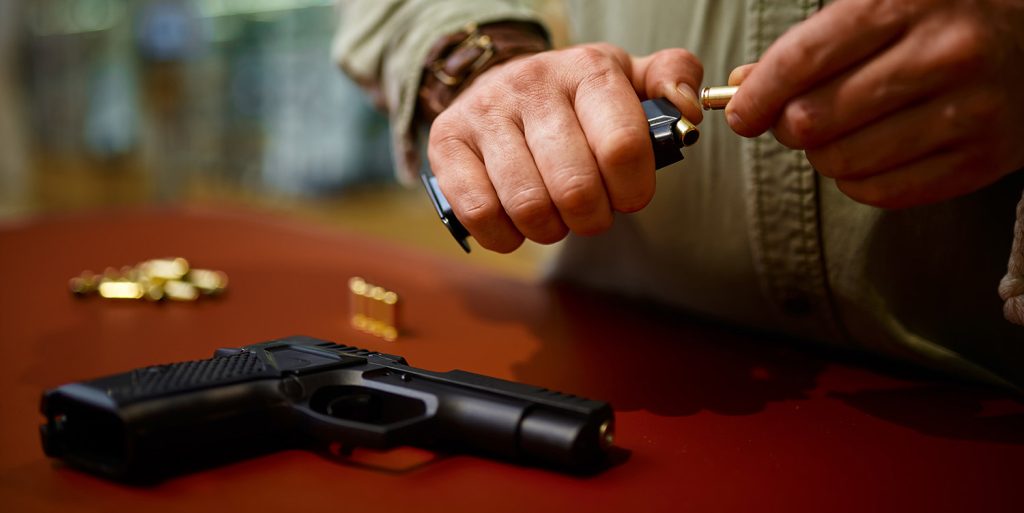

Federal vs State Firearm Charges: Key Differences and Defense Strategies
When facing gun-related criminal allegations, it is crucial to understand the distinctions between Federal vs. State Firearm Charges and how they can impact your case. While California has some of the strictest gun laws in the country, federal firearm regulations also impose severe penalties for violations. If you have been accused of a gun crime, you may face charges at either or both levels, depending on the circumstances. A skilled criminal defense attorney can help you navigate these complex legal issues and develop the best defense strategy for your case.
What Constitutes Illegal Firearm Possession in California?
The main distinction between Federal vs. State Firearm Charges lies in jurisdiction. State firearm charges involve violations of California’s gun laws, while federal charges typically arise from offenses that involve interstate commerce, law enforcement agencies, or federal lands. Some key differences include:
- State Firearm Charges: Handled in California state courts and prosecuted under California Penal Code.
- Federal Firearm Charges: Prosecuted in U.S. District Courts under federal laws, such as the Gun Control Act of 1968 and the National Firearms Act.
- Overlap Cases: Some offenses, such as illegal firearm possession by a felon, can be prosecuted at both the state and federal levels, depending on the severity and jurisdictional factors.
If you are facing Federal vs. State Firearm Charges, consulting an experienced criminal defense attorney is essential to determine the best course of action.
Understanding Gun Laws at the State Level
California has enacted stringent firearm laws, and violations can result in serious criminal charges. Common State Firearm Charges include:
- Carrying a concealed firearm without a permit (Penal Code § 25400)
- Possession of an unregistered or unserialized firearm (ghost gun) (Penal Code § 29180)
- Felon in possession of a firearm (Penal Code § 29800)
- Possession of an assault weapon or high-capacity magazine (Penal Code §§ 30510-30515)
- Carrying a loaded firearm in public without authorization (Penal Code § 25850)
State penalties for firearm violations vary, ranging from misdemeanors with fines and probation to felonies carrying multi-year prison sentences. If you are charged under California’s firearm laws, a criminal defense attorney can help develop a defense strategy based on your specific case.
When Gun Crimes Are Prosecuted at the Federal Level
Federal firearm offenses typically involve situations where gun laws intersect with national security or commerce regulations. Some of the most common Federal Firearm Charges include:
- Felon in possession of a firearm (18 U.S.C. § 922(g))
- Illegal possession of a firearm with altered or removed serial numbers (18 U.S.C. § 922(k))
- Trafficking firearms across state lines (18 U.S.C. § 922(a)(1)(A))
- Possession of a firearm in a school zone (18 U.S.C. § 922(q))
- Unlawful possession of a machine gun or short-barreled rifle (18 U.S.C. § 922(o))
Federal firearm convictions often carry harsher penalties than state offenses, with mandatory minimum prison sentences and enhanced penalties for prior convictions. If you are facing Federal vs. State Firearm Charges, a criminal defense attorney can evaluate your case and determine if a federal defense strategy is necessary.
How Federal and State Firearm Laws Overlap
In some cases, an individual may face both Federal vs. State Firearm Charges for the same incident. This is known as dual sovereignty, which allows state and federal governments to prosecute a person separately without violating double jeopardy protections. Factors that determine whether a case will be prosecuted at both levels include:
- The severity of the offense
- The presence of prior convictions
- Whether the firearm crossed state lines
- Whether federal law enforcement agencies (FBI, ATF) were involved in the investigation
If you are under investigation or have been charged with a gun-related crime, consulting a criminal defense attorney can help you understand whether you may face charges in both jurisdictions and how to best defend yourself.
Defense Strategies for Federal vs. State Firearm Charges
A strong legal defense is crucial when facing Federal vs. State Firearm Charges. Potential defense strategies include:
1. Unlawful Search and Seizure
Law enforcement must follow proper procedures when searching for and seizing firearms. If your gun was obtained through an illegal search, your attorney may file a motion to suppress the evidence.
2. Lack of Knowledge or Intent
To secure a conviction, the prosecution must prove that you knowingly possessed the firearm. If you were unaware of its presence or ownership, this defense could be used in your case.
3. Self-Defense or Necessity
In some cases, possession of a firearm may be justified due to self-defense or imminent danger. If you had no intent to commit a crime, this defense may be applicable.
4. Entrapment or Law Enforcement Misconduct
If law enforcement officers coerced or pressured you into committing a firearm-related offense, an entrapment defense could be used to challenge the charges.
5. Challenging the Evidence
Forensic analysis, ballistics testing, and chain-of-custody issues can all be used to dispute the reliability of the prosecution’s evidence.
An experienced criminal defense attorney can assess the best defense strategy based on the specific details of your case.
What to Do If You Are Facing Federal or State Firearm Charges
If you have been accused of a firearm-related offense, taking immediate action can protect your rights. Here’s what to do:
- Do Not Speak to Law Enforcement Without an Attorney
- Anything you say can be used against you. Politely decline to answer questions without legal counsel present.
- Hire an Experienced Criminal Defense Attorney
- A skilled criminal defense attorney can review your case and build a strong defense.
- Gather Evidence and Witnesses
- If applicable, collect any evidence or witness statements that support your case.
- Understand the Charges Against You
- Knowing whether your case falls under federal, state, or both jurisdictions is crucial in planning your defense.
Understanding Federal vs. State Firearm Charges is critical if you are facing gun-related allegations. While California enforces strict gun laws at the state level, federal firearm offenses can result in even harsher penalties. If you are accused of a firearm crime, working with an experienced criminal defense attorney can help you navigate the legal complexities and develop a strong defense. Don’t wait—secure the legal representation you need today.
Schedule an Appointment for a Free Consultation
If you need help regarding California Racial Justice Act in Pomona or surrounding area, don’t wait to seek legal representation. With offices in Pomona, Rancho Cucamonga, West Covina, and Riverside, David Canty is ready to fight for you. Contact us today to schedule a free consultation and let us help you navigate the complex legal process, protect your rights, and fight for the best possible outcome in your case.
HOW CAN WE HELP?
If you or a loved one needs help in one of the following areas, please fill out the form and someone from our office will respond as quickly as possible.
HOW CAN WE HELP?
If you or a loved one needs help in one of the following areas, please fill out the form and someone from our office will respond as quickly as possible.




